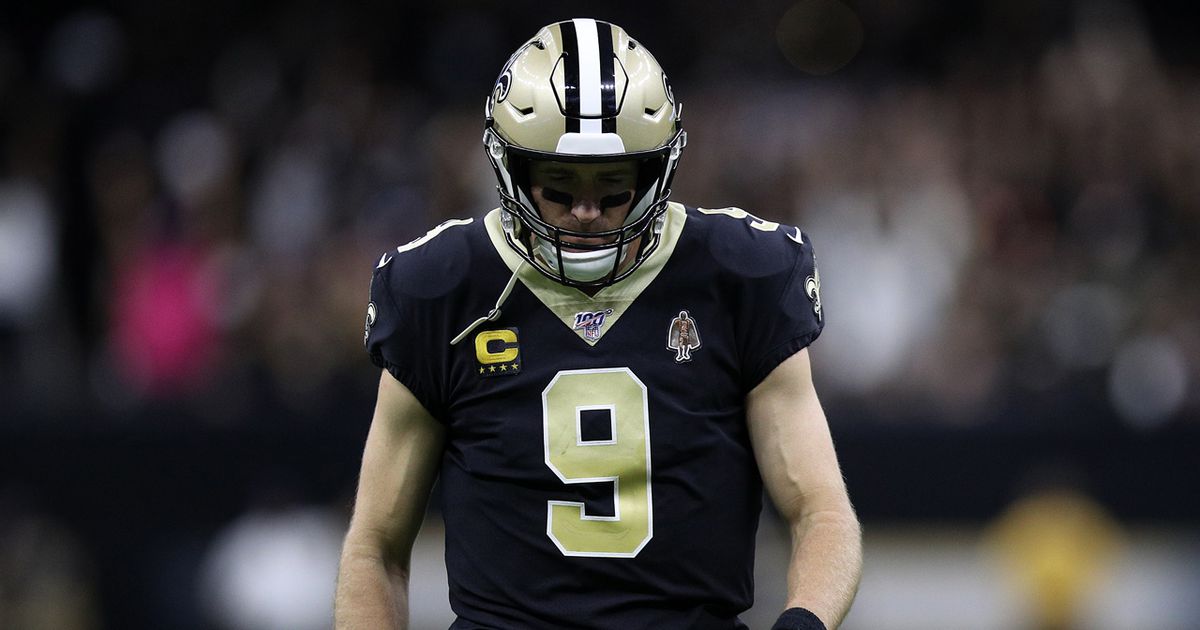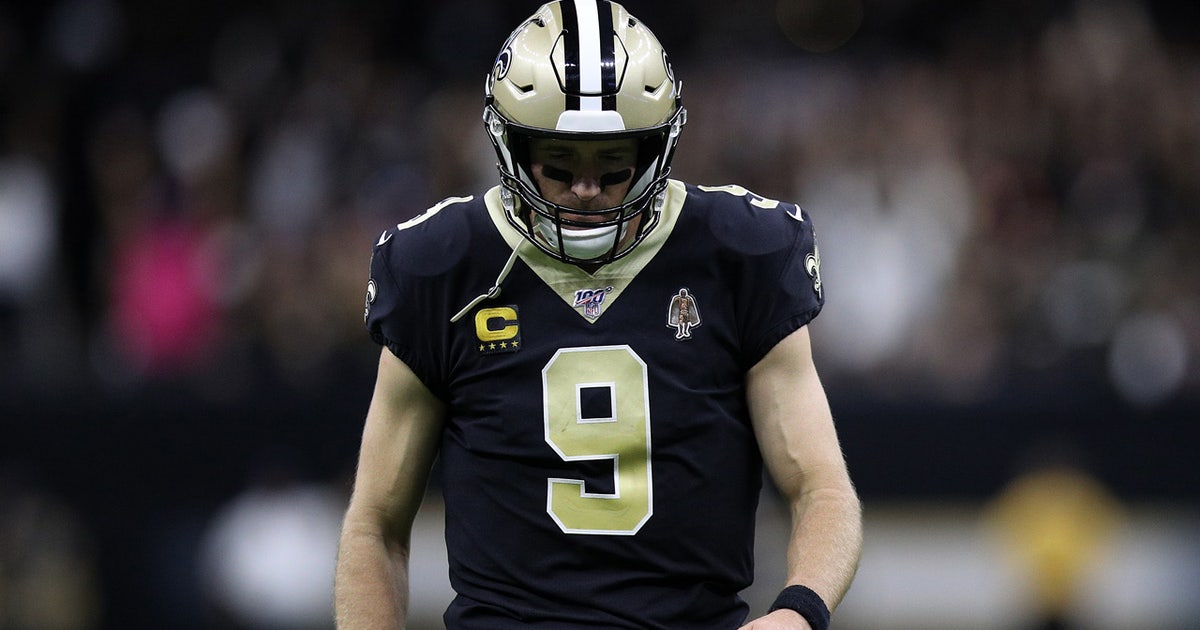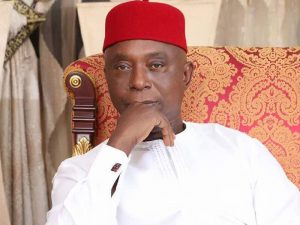The NFL world is holding Drew Brees accountable, starting with his teammates


When it comes to the professional football lexicon, “accountability” is the buzz word that just keeps on buzzing.
It sounds like it could be one of those fad terms that might pop up from time to time and then disappear — except it stays, because the thought and idea and principle behind it matter.
I would like to apologize to my friends, teammates, the City of New Orleans, the black community, NFL community and anyone I hurt with my comments yesterday. In speaking with some of you, it breaks my heart to know… https://t.co/Jg36d0Ad0l
— Drew Brees (@drewbrees) June 4, 2020
Perhaps, right now, it is more important than ever.
Accountability can look like a lot of things, from a veteran lineman demanding more of a willful rookie in training camp, to a player reminding a teammate of his duties to the group and encouraging him not to make a bad off-field decision. It can look like a coach insisting upon poise and commitment from his charges when the going gets tough.
And, as Drew Brees discovered to his presumptive surprise this week, it can look like younger, less experienced, lower-paid, less famous teammates, calling to account a 41-year-old Hall of Fame-bound quarterback who should have known better.
“I believe that yesterday Drew Brees showed you his true colors. Michael Thomas summed it up for me yesterday with one line on Twitter: ‘He don’t know enough to know.'”@RealSkipBayless pic.twitter.com/VGuE1wW4oR
— UNDISPUTED (@undisputed) June 4, 2020
In these increasingly remarkable days, a time that simultaneously feels stranger yet more significant than any that most of us have known, everyone is quickly realizing how thinking before you speak is the most basic and necessary of mental qualities.
Brees didn’t get the memo.
“I will never agree with anybody disrespecting the flag of the United States of America or our country,” Brees said, in an interview with Yahoo Finance. “Is everything right with our country right now? No, it is not. We still have a long way to go. But I think what you do by standing there and showing respect to the flag with your hand over your heart is, it shows unity.”
Highlight: @readdanwrite asks @drewbrees what the star NFL quarterback thinks about “players kneeling again when the NFL season starts.”@drewbrees: “I will never agree with anybody disrespecting the flag of the United States of America or our country.”
Full exchange: pic.twitter.com/MpCkFyOMed
— Yahoo Finance (@YahooFinance) June 3, 2020
The backlash was immediate. Countless sports figures hit out at Brees’ comments — but the most meaningful reactions of all came from his teammates, those for whom it would have been the path of least resistance to say nothing, yet did so anyway. Emmanuel Sanders, Michael Thomas and Malcolm Jenkins all spoke strongly against Brees’ words.
Brees, in trying to explain himself later to ESPN, then referenced how his support for the military had been behind his remarks, which didn’t help his argument. (Jenkins’ Twitter video, featured below, includes strong language.)
I recorded a few videos when thinking of how to respond to Drew Brees, I don’t take any of it back-I meant what I said-I removed the 1st video because I knew it be more about the headlines. I want people to understand how those of us struggling with what’s going on feel pic.twitter.com/T054qt0YEz
— Malcolm Jenkins (@MalcolmJenkins) June 3, 2020
Without knowing him personally, there is plenty of evidence that Brees is not a bad guy. His current and former teammates have generally spoken glowingly of him and his leadership, and he has embarked upon a variety of charitable works in the New Orleans area.
What he fell victim to was twofold. He felt the same argument he might have used last year, or last month, heck, even last week, would still fly. And, in doing so, he showed he has not been listening to … everything.
“If you can’t get a guy who grew up with blacks in the locker room, from peewee to high school to college to the NFL, to understand the black man’s plight, who will?” said Shannon Sharpe on Undisputed. “What about guys who are not around blacks on a daily basis?
“What makes the black man’s fight so hard is people like Drew Brees. If you can’t get a guy who grew up with blacks in the locker room from pee-wee, high school, college and the NFL to understand our plight, then who will?”
— @ShannonSharpe pic.twitter.com/tfVYlylXny
— UNDISPUTED (@undisputed) June 4, 2020
“What would make you think at this moment, eight or nine days after George Floyd had lost his life, that you would bring up the military and the flag? Drew, I don’t know what you were thinking, I don’t know what you hope to accomplish, but it failed miserably. Drew thinks that well that’s what (the flag) means to me, a sense of pride, a sense of honor. Well everybody don’t feel like that, Drew, because it hasn’t represented them in the exact same way.”
Just as important as accountability in the NFL is timing. Brees’ timing could not have been worse. Now, in all honesty, is not really the moment to be talking about the military. Those who have served America will never cease to be worthy of our gratitude and support, but here is the point — they already have those things, and no one is trying to take it from them.
Now is the time to be talking about equality. Because if not now, after hundreds of years without it, then when?
“I was frustrated that he still didn’t get it and that he made it about the flag because it was never about the flag. From day 1 when Kaepernick took a peaceful knee, it was always about the injustice & police brutality that continues to happen even to this day.” — @ReggieBush pic.twitter.com/zFeuaYIq8H
— Speak For Yourself (@SFY) June 4, 2020
The reality that everyone has duties and responsibilities has never been more starkly in focus. We are accountable to ourselves and our families, to those we work and play and socialize with, and to the general population.
One of the centrifugal points of this entire discussion is that there have been differing levels upon which different American voices have been heard, for far too long. George Floyd’s voice, even when he was pleading for breath — and life — went unanswered.
.@DaTrillStak5 reacts to charges against the officers responsible for George Floyd’s death:
“It’s a step in the right direction, but you already know we want convictions. We want guys in jail and treated the way they’d treat any other black man for murder.” pic.twitter.com/zuebNhcWyi
— UNDISPUTED (@undisputed) June 4, 2020
It is appropriate, then, that those who reap the financial rewards that come with being part of America’s most beloved sport, also shoulder the responsibility associated with having a voice that is heard by millions, no matter what they say.
Furthermore, because you have a voice that will be heard, it is even more important that you don’t use it to drown out those who don’t.
Stop. Listen. Think.
.@GregJennings explains why Drew Brees’ comments were a disappointment to so many: pic.twitter.com/9vNRm93MnJ
— First Things First (@FTFonFS1) June 4, 2020
On Thursday, Brees put out a statement, one that came across as genuine and heartfelt. It shouldn’t have been necessary, but it struck the right tone. It was praised by several Saints players, including locker room leader Demario Davis.
“In an attempt to talk about respect, unity, and solidarity centered around the American flag and the national anthem, I made comments that were insensitive and completely missed the mark on the issues we are facing right now as a country,” Brees wrote. “They lacked awareness and any type of compassion or empathy. Instead, those words have become divisive and hurtful and have misled people into believing that, somehow, I am an enemy. This could not be further from the truth, and is not an accurate reflection of my heart or my character.”
View this post on InstagramA post shared by Drew Brees (@drewbrees) on
This is not a story with a happy ending, because there aren’t a lot of those at the moment, but at least the timeline of it trended in a positive direction.
Brees spoke. He misspoke. His teammates pointed out that what might not have been intended as offensive, was certainly offensive to them. He heard those points, broadened his view, and acted upon it. That’s how accountability is supposed to work — and for Brees, the work is just beginning.
It’s not perfect, but it’s something.








